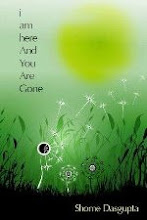Monday, November 28, 2011
Melissa Broder, On Reading
"I am a very hungry and thirsty girl. I have an infinite god-shaped hole inside. I want to be sated and de-thirsted 24 hours a day. If I can’t be sated and de-thirsted 24 hours a day I want to be lifted up out of my body so I don’t have to feel anything or so I can feel only euphoric. Sometimes poetry does one of these things for me: sates or de-thirsts or lifts. I read my first poems at six. I wrote my first poems at eight. I have since tried many other ways to fill the god-shaped hole, but poetry is one of the safest ways I know how. The main consequence of reading poetry, for me, is writing poetry."
{Melissa Broder is the author of two poetry collections, Meat Heart (forthcoming from Publishing Genius, 2012) and When You Say One Thing But Mean Your Mother (Ampersand Books, February 2010). Visit her here for more information.}
Tuesday, November 22, 2011
Robert Kloss, On Reading
“I’ve never really thought about why I read or what it means to me. I’ve never had the need to justify the action, even when my father or my teachers made me feel like it was a less than healthy activity — I just sneaked around to do it. Honestly, I think I just fell into the habit when I was very young and I always kept at it. But, then again, I was always good at it and it was one of the few things I was good at so for whatever reason it was a natural activity. It was also one of the few things I liked to do so I did it whenever I could. At the moment I started to read I also started to write and I think the two have always been bound up in each other. Writing was the other thing I liked to do that I was also good at. Had I been able to draw or had I been able to sing or had I been more athletic things may have worked out differently. Slowly I think the writing cannibalized the reading, so now most or all of my reading happens so that I can write — it’s research or its inspiration, searching for power. I read how Melville wrote Moby-Dick while reading Shakespeare and Greek tragedy and Sterne and Rabelais and how those geniuses somehow unlocked his own genius. I have to admit I have always tried to do the same thing, with not quite as startling results. So I suppose if I have any requirement of the books I read, now, its that they should startle me. I don’t read for a good yarn or to gain some insight into why people do what they do or some other abstract insight: I suppose I read to be startled and amazed by something brilliant and awesome, like an old time prophet caught in the glow and hum of the burning bush.”
{Robert Kloss is the author of How the Days of Love & Diphtheria (Mud Luscious Press/Nephew) and The Alligators of Abraham (Mud Luscious Press, 2012). He is found online at rkbirdsofprey.blogspot.com.}
Subscribe to:
Posts (Atom)













